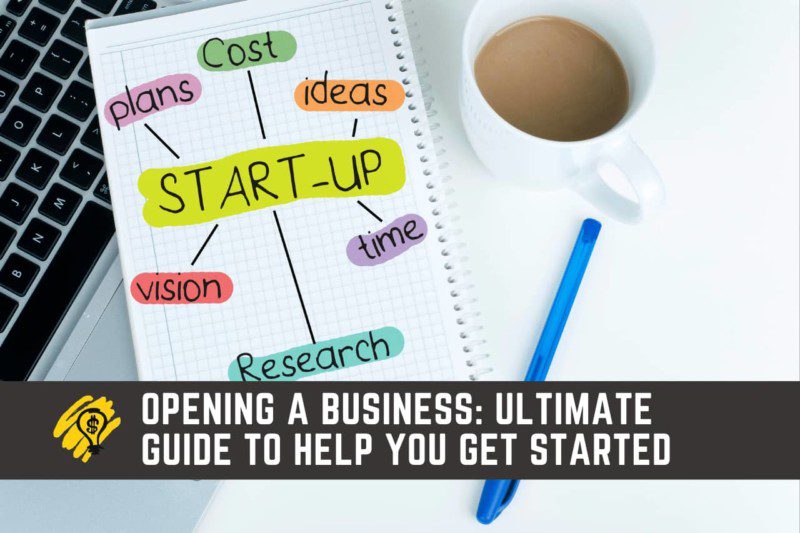So you’ve decided to open a business. Congratulations! Starting your own business is an incredibly rewarding experience, but it can also be challenging.
But businesses are made up of many aspects, including location, equipment, and staff. With this in mind, opening a business isn’t always straightforward. Even if you have the best ideas, you might not be able to get started because of a lack of access to funding, legal advice, or a suitable location.
Before you start, there are many things to consider, and it’s vital to ensure you’re prepared for the journey ahead. This guide will walk you through everything you need to know about opening a business.
Research Your Market
Before you start your business, it’s important to understand the market. Research the competition and the industry. Find out what potential customers are looking for by conducting surveys or interviews. Researching your market will help you better understand how to position your product or service with others. It will also help you better determine pricing, target demographics, and customer needs. You should also identify potential challenges or risks associated with starting a business in your chosen industry. Consider the barriers to entry and the external factors that could impact your success. Knowing what you’re getting into is essential for planning and preparing for success.
Develop Your Idea
Once you’ve done your market research, it’s time to develop your business idea. Brainstorm and come up with a product or service that meets customer needs. Consider the target market and potential competitors. Think about what advantages you can offer over other businesses in the industry. Once you know what type of business you want to start, it’s time to develop a plan. Creating a business plan will help you outline your goals and objectives, marketing strategies, financial projections, and operations strategy. It should also include an analysis of the potential risks associated with starting your business and contingency plans for addressing them.
Secure Funding
After developing your business plan and idea, the next step is securing funding. You’ll need capital to get started, so you’ll want to explore different options for financing your business. Many small businesses are financed through personal savings or investments from family and friends. You can also get loans from banks, credit unions, or other lenders.
Other sources of funding include grants, venture capital, or crowdfunding campaigns. If you don’t know where to start, consider visiting https://abcfinance.co.uk to learn more about different types of loans and how to apply. When seeking funding for your business, you must know what type of financial return you expect from investors. It will help you determine the amount of money you’ll need to get your business off the ground. It would be best if you were prepared to provide detailed information about your business plan, financial projections, and budgeting strategies. Make sure to have a well-crafted pitch ready so you can explain the opportunity of investing in your business.

Choose Your Business Structure
Before you officially launch your business, you’ll need to choose a business structure. The type of structure you select will determine the legal and financial responsibilities of owning and operating a business. Common business structures include sole proprietorship, partnership, corporation, limited liability company (LLC), or nonprofit organization.
Each structure has its advantages and disadvantages, and you should research each to find out the best fit for your business. Consider the liability you’re willing to take on, the taxes you’ll need to pay, or any special regulations or restrictions that may apply to your industry. You should consult a lawyer or accountant to understand each business structure’s legal and financial implications.
Define Your Brand
Your brand is the public face of your business and will determine how customers perceive you. It should create an emotional connection with potential customers that conveys your values and mission. An important part of defining your brand is creating a logo or tagline that conveys your message. A great logo or tagline should be memorable, recognizable, and relevant to your target market. When creating a logo or tagline, think about what makes your business unique and how you want customers to perceive it. Consider colors, fonts, images, and other design elements that could help convey your message.
Register Your Business and Get Licenses
Depending on where you’re located and what industry you’re in, there may be different regulations or requirements for starting a business. You should consult with an attorney or accountant to ensure that your paperwork is in order and that you comply with local regulations. Registering your business will involve filing the necessary paperwork with your state’s Secretary of State office or other relevant government agency. This process typically involves filling out an application, paying associated fees, and submitting a background check. You may also need to get additional licenses or permits depending on the type of business you’re starting.
Starting a business is an exciting but challenging venture. It takes dedication, hard work, and the right preparation to ensure your business gets off to a successful start. To help you prepare, use this ultimate guide to opening a business as your roadmap.





